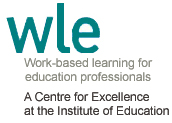|
Last update:
19/01/2008 |
Keynote speakers
 |
Professor Mizuko Ito
University of Southern California, USA; and Keio
University, Japan.
Title:
Chronicling Portable Practices in Urban Environments
Abstract: Ethnographers studying mobile and portable
technologies must reconsider basic methodological commitments
towards observation and the framing of social and cultural context.
As people's social relations and access to culture and knowledge
becomes mediated by networked technologies, the ethnographer must
consider the context for behavior as a hybrid between the physical
environment with co-present others and the networked "virtual"
environment. What conceptual and methodological frameworks enable us
to conduct this kind of real/virtual ethnographic research in
networked and mobile worlds? This talk will review a number of
studies conducted at Keio University's DoCoMo House research lab
that utilize hybrid methods of observation, interviewing, and
diaries to get at a range of different approaches to studying the
use of portable technologies in urban space.
Biography: Mizuko Ito is a cultural anthropologist of
technology use, focusing on children and youth’s changing
relationships to media and communications. She is part of a research
project supported by the MacArthur Foundation, “Kids’ Informal
Learning with Digital Media,” a three year ethnographic study of
kid-initiated and peer-based forms of engagement with new media.
She is also conducting ongoing research on Japanese technoculture,
looking at how children in Japan and the US engage with post-Pokemon
media mixes. Her research on mobile phone use in Japan appears in a
book she has co-edited, Personal, Portable, Pedestrian: Mobile
Phones in Japanese Life. She is a Research Scientist at the School
of Cinematic Arts at the University of Southern California, and a
Visiting Associate Professor at Keio University in Japan.
http://www.itofisher.com/mito.
|
 |
Professor David Livingstone
Ontario Institute for Studies in Education,
Canada.
Title:
Basic Research on Lifelong Learning: Recent Survey
Findings and Reflections on ‘Capturing’ Informal Learning
Abstract: The presentation will summarize findings from the
1998 and 2004 Canadian national surveys of lifelong learning and
work, including profiles of and relations between paid/unpaid
(domestic, volunteer) work and formal (schooling/adult courses)
education and informal (job/housework/volunteer work/general
interest related) learning. Features of the hidden informal part of
the “iceberg” of adult learning will be emphasized, particularly the
very weak links between formal education and informal learning.
Methodological limitations of both survey and case study empirical
research to date on informal learning will be noted, with some
reference to the ongoing computerization of everyday life.
Implications for “tracking” or “capturing” informal learning in
mobile contexts will be suggested.
Biography: Dr. D.W. Livingstone is Canada Research Chair in
Lifelong Learning and Work at the University of Toronto, Head of the
Centre for the Study of Education and Work at OISE/UT, professor in
the Department of Sociology and Equity Studies at OISE/UT, and
Director of the SSHRC-funded national WALL research network on “The
Changing Nature of Work and Lifelong Learning” (see
www.wallnetwork.ca). He was born in Vancouver, B.C. He holds an
Honours B.A. in sociology from the University of British Columbia
and a doctorate in social relations from Johns Hopkins University.
He has also been the principal investigator of the OISE/UT Biennial
Survey of Public Attitudes Toward Education in Ontario since 1978.
His books include: Working and Learning in the Information Age
(Ottawa: Canadian Policy Research Networks, 2002), Hidden Knowledge:
Organized Labour in the Information Age (Garamond Press and Rowman &
Littlefield, 2003)(with P. Sawchuk), The Education-Jobs Gap:
Underemployment or Economic Democracy (Garamond Press and Percheron
Press, 2004, second edition), International Handbook of Educational
Policy. (Springer, 2005) (edited with N. Bascia, A. Cumming, A.
Datnow and K. Leithwood). His current research interests include an
array of studies of relations between paid/unpaid work and
formal/informal learning, most notably combined surveys and case
studies of relations between education and jobs. Forthcoming books
include: The Future of Lifelong Learning and Work: Critical
Perspectives (Rotterdam: Sense Publishers, 2008) (edited with K.
Mirchandani and P. Sawchuk) and Education and Jobs: Exploring the
Gaps forthcoming in 2008.
|
 |
Professor Mike Sharples
Learning Sciences Research Institute, University
of Nottingham, UK.
Title:
Evaluation methods for mobile learning
Abstract: Evaluation has been identified as a ‘big issue’ of
mobile learning. Assessing the effectiveness of mobile learning may
involve tracking groups and individuals moving under their own
volition over a wide area, including private spaces, interacting
with a variety of technologies, possibly developing skills and
knowledge over long periods of time. In addition, both the
technologies and the educational approaches to mobile learning are
evolving rapidly, so formative evaluation methods are needed to
inform the co-design of new combinations of learning and technology.
I shall discuss the evaluation
methods for three major mobile learning projects – MOBIlearn,
MyArtSpace, and PI: Personal Inquiry – and indicate how they
addressed the issues of a) co-design of learning and technology,
b) evaluation of learning of individuals and groups across
settings, and c) the ethics of running studies to monitor learning
activity inside and outside the classroom. The talk will make
particular mention of the socio-cognitive engineering approach of
MOBIlearn, the multi-level evaluation for MyArtSpace and the
ethical guidelines of the PI project.
Biography: Mike
Sharples is Professor of Learning Sciences and Director of the
Learning Sciences Research Institute at the University of
Nottingham. He has an international reputation for research in
mobile learning and the design of learning technologies. He
inaugurated the mLearn conference series and is President of the
International Association for Mobile Learning. As Deputy Scientific
Manager of the Kaleidoscope Network of Excellence in Technology
Enhanced Learning he coordinates a network of 1100 researchers
across 90 European research centres. His current projects include
PI: Personal Inquiry, a collaboration with the Open University UK to
develop 21st century science learning between formal and informal
settings, and a national survey of social networked learning at home
and school. Recent projects include MyArtSpace for mobile learning
in museums and the L-Mo project with Sharp Laboratories of Europe to
develop handheld technologies for language learning. He is author of
160 publications in the areas of interactive systems design,
artificial intelligence and educational technology.
|
|
 Research Methods in Informal and Mobile Learning:
Research Methods in Informal and Mobile Learning:

